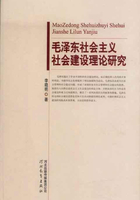It happened upon this emergency that AEsop broke silence first. He had been of late most barbarously treated by a strange effect of the regent's humanity, who had torn off his title-page, sorely defaced one half of his leaves, and chained him fast among a shelf of Moderns. Where, soon discovering how high the quarrel was likely to proceed, he tried all his arts, and turned himself to a thousand forms. At length, in the borrowed shape of an ass, the regent mistook him for a Modern; by which means he had time and opportunity to escape to the Ancients, just when the spider and the bee were entering into their contest; to which he gave his attention with a world of pleasure, and, when it was ended, swore in the loudest key that in all his life he had never known two cases, so parallel and adapt to each other as that in the window and this upon the shelves. "The disputants," said he, "have admirably managed the dispute between them, have taken in the full strength of all that is to be said on both sides, and exhausted the substance of every argument PRO and CON. It is but to adjust the reasonings of both to the present quarrel, then to compare and apply the labours and fruits of each, as the bee has learnedly deduced them, and we shall find the conclusion fall plain and close upon the Moderns and us. For pray, gentlemen, was ever anything so modern as the spider in his air, his turns, and his paradoxes? he argues in the behalf of you, his brethren, and himself, with many boastings of his native stock and great genius; that he spins and spits wholly from himself, and scorns to own any obligation or assistance from without. Then he displays to you his great skill in architecture and improvement in the mathematics. To all this the bee, as an advocate retained by us, the Ancients, thinks fit to answer, that, if one may judge of the great genius or inventions of the Moderns by what they have produced, you will hardly have countenance to bear you out in boasting of either. Erect your schemes with as much method and skillas you please; yet, if the materials be nothing but dirt, spun out of your own entrails (the guts of modern brains), the edifice will conclude at last in a cobweb; the duration of which, like that of other spiders' webs, may be imputed to their being forgotten, or neglected, or hid in a corner. For anything else of genuine that the Moderns may pretend to, I cannot recollect; unless it be a large vein of wrangling and satire, much of a nature and substance with the spiders' poison; which, however they pretend to spit wholly out of themselves, is improved by the same arts, by feeding upon the insects and vermin of the age. As for us, the Ancients, we are content with the bee, to pretend to nothing of our own beyond our wings and our voice: that is to say, our flights and our language. For the rest, whatever we have got has been by infinite labour and search, and ranging through every corner of nature; the difference is, that, instead of dirt and poison, we have rather chosen to till our hives with honey and wax; thus furnishing mankind with the two noblest of things, which are sweetness and light."It is wonderful to conceive the tumult arisen among the books upon the close of this long descant of AEsop: both parties took the hint, and heightened their animosities so on a sudden, that they resolved it should come to a battle. Immediately the two main bodies withdrew, under their several ensigns, to the farther parts of the library, and there entered into cabals and consults upon the present emergency. The Moderns were in very warm debates upon the choice of their leaders; and nothing less than the fear impending from their enemies could have kept them from mutinies upon this occasion. The difference was greatest among the horse, where every private trooper pretended to the chief command, from Tasso and Milton to Dryden and Wither. The light-horse were commanded by Cowley and Despreaux. There came the bowmen under their valiant leaders, Descartes, Gassendi, and Hobbes; whose strength was such that they could shoot their arrows beyond the atmosphere, never to fall down again, but turn, like that of Evander, into meteors; or, like the cannon-ball, into stars. Paracelsus brought a squadron of stinkpot-flingers from the snowy mountains of Rhaetia. There came a vast body of dragoons, of different nations, under theleading of Harvey, their great aga: part armed with scythes, the weapons of death; part with lances and long knives, all steeped in poison; part shot bullets of a most malignant nature, and used white powder, which infallibly killed without report. There came several bodies of heavy-armed foot, all mercenaries, under the ensigns of Guicciardini, Davila, Polydore Vergil, Buchanan, Mariana, Camden, and others. The engineers were commanded by Regiomontanus and Wilkins. The rest was a confused multitude, led by Scotus, Aquinas, and Bellarmine; of mighty bulk and stature, but without either arms, courage, or discipline. In the last place came infinite swarms of calones, a disorderly rout led by L'Estrange; rogues and ragamuffins, that follow the camp for nothing but the plunder, all without coats to cover them.
The army of the Ancients was much fewer in number; Homer led the horse, and Pindar the light-horse; Euclid was chief engineer; Plato and Aristotle commanded the bowmen; Herodotus and Livy the foot; Hippocrates, the dragoons; the allies, led by Vossius and Temple, brought up the rear.















